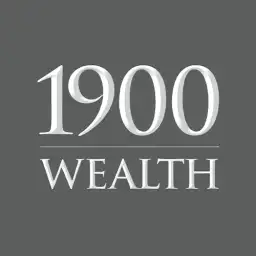San Antonio Investment Firm 1900 Wealth Uses Charitable Gifting Strategies to Help Clients Minimize Tax Liability, Increase Income and Maximize Assets Passed on to Family Members
SAN ANTONIO—March 14, 2022. With the April 15 tax deadline fast approaching, San Antonio-based investment advisor 1900 Wealth Management (1900 Wealth) highlighted charitable giving and the significant advantages it can have for philanthropic individuals.
“A thoughtful financial planner can help a philanthropic client accomplish multiple objectives through charitable giving, including minimizing their tax liability, increasing their income and maximizing the value of the assets they pass on to family members,” said 1900 Wealth Senior Advisor Dan Slattery CPA, PFS.
A charitable gift strategy may not be appropriate for all clients, but it is one Slattery recommends often for clients who are interested in helping others and giving back to their community. His first order of business when working with a philanthropic client is to have a frank conversation about their personal interests and objectives and suggest a tax advantaged plan to meet those objectives.
One option is the charitable rollover. Often called a qualified charitable distribution, it allows a person aged 70-1/2 or older to pass up to $100,000 of their required minimum distribution from an IRA directly to charity without declaring that amount as taxable income.
Another vehicle is the donor-advised fund (DAF). Essentially, this is an account dedicated solely to supporting a client’s preferred charitable organization(s). When a client deposits cash, securities, or other property into a DAF they may take a tax deduction immediately, while the disbursement is made to the charity in a subsequent year. By carefully timing charitable contributions, a donor may be able to maximize tax deductions.
The donor can contribute to the DAF as frequently as they like and recommend grants from the fund. The charity can invest the funds for tax-free growth in the meantime. The donation cannot be revoked or returned to the donor or any other individual, and it cannot be used for any purpose other than making grants to charities.
Those who might benefit from a DAF include:
- An Individual who wants to create a long-term charitable giving plan but is seeking an alternative to the hassles of creating a private foundation;
- An individual who is not achieving the best income tax benefit from their annual giving;
- A private foundation that has difficulty meeting its 5% annual distribution requirement; and
- An individual who wants to pass appreciated property to a public charity but has not yet identified the public charity to which the proceeds will pass.
A donor-advised fund provides a great deal of flexibility and is a useful alternative to creating a private foundation, which involves legal and accounting fees and is subject to a 1.39% annual excise tax on net investment income.
A DAF is a separate entity from the donor. While the donor may advise the fund where its distributions should go, the assets in the DAF no longer belong to the donor.
Investment advisors at 1900 Wealth take a holistic approach to building each client’s portfolio, tailoring an investment plan to fit that individual’s personal preferences and unique circumstances. Advisors consider the client’s time horizon, ability and willingness to accept risk, liquidity needs, the strength of their current and future income, tax situation, return expectations and other assets on their balance sheet. This holistic planning creates investment plans for clients that cover the incremental parts of their financial lives while ensuring they all work together. In essence, it is an investment strategy that regards the whole as greater than the sum of its parts.
The information contained herein is not a solicitation and is not intended to be used as tax or legal advice. Individuals should consult with their tax professional or attorney regarding their specific situation.



